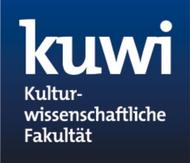Profile
About us
The Viadrina Institute for European Studies (IFES) conducts interdisciplinary research on social, political and cultural figurations on the European continent and its global entanglements. The institute focuses both on historical and contemporary processes of Europeanisation, paying particular attention to their inherent complexities and ambivalences. Through its research, the IFES seeks to contribute to a deeper understanding of Europe and to foster a critical perspective within the field of European studies.
History
The phase of fundamental, simultaneous change in political, legal, and economic systems in Europe after 1989 has largely concluded. Today, instead of ongoing "transformation," Europe is characterized by a coexistence of democratically governed states within the EU’s sphere of influence and autocracies increasingly under Russian influence. In contrast to the era of real socialism, however, Eastern Europe is now integrated into the global economy and is socially and culturally connected to Central and Western Europe.
As the successor to the former Frankfurt Institute for Transformation Studies, which focused primarily on transformation processes in Eastern Europe, the Viadrina Institute for European Studies (IFES) has extended the research scope in order to encompass all of Europe and its complex interdependencies in a globalized world.
The Frankfurt Institute for Transformation Studies (FIT) has thus merged into the multidisciplinary Viadrina Institute for European Studies (IFES), which continues to focus on Europe as a whole, with particular interest in Central and Eastern Europe but adapts it to the broader current challenges of European research. Throughout Europe, social contrasts are growing, public debates are increasingly polarized and political volatility is high. In Central Europe (as in large parts of Southeastern Europe), the focus has shifted from transitioning to democracy to contested variations of a core concept of democracy and market economy.
Rather than adhering to a concept of transformation that is often seen as a teleological process, research at the IFES is based on openness to processes of social, political, cultural and economic change. Ideas, models and discourses are included as objects of research rather than as normative objectives with regard to Europe as a whole and Eastern Europe in particular. The historical contextualisation of the current dialectic of integration and disintegration, particularly in Eastern Europe, is linked to the crisis-ridden developments of the EU in Western Europe.
